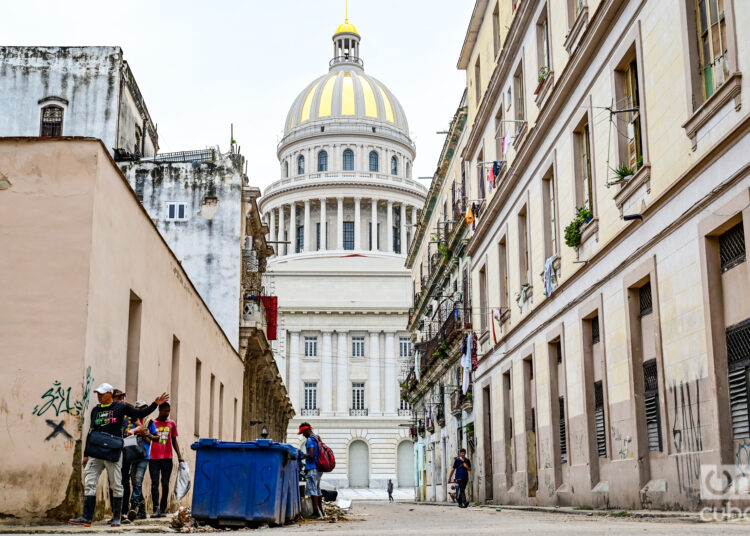The Council of Ministers approved the Government’s Objectives and Projections for 2025, which include priority topics for the country’s agenda, such as attention to pensioners and retirees, science and innovation, and digital transformation. “This is something that transcends even the Government, it is a Program led by the Government, but it is transversal to all sectors, to all activities of the country, both politically, economically, and socially”, said Prime Minister, Manuel Marrero, during the meeting he chaired.
Miguel Díaz-Canel was also present at the meeting and emphasized that “in the fundamental issues, in those that are most affecting the population and the development of the country, we must be able to identify which projects can be strengthened; if they exist, how we can improve them; and if they do not exist, how we can conceive new projects”.
The incumbent also highlighted the potential of the Plan for the State Economy and Budget approved for 2025. “We have priorities, objectives, and indicators that guide the work, and we need to make analyses that interrelate the behavior of the indicators, and how this analysis will give us where we have to act, what paths we have to take, what things we have to unblock,” he said.
Collateral Topics
According to Cubadebate, in addition to the Objectives and Projections, which are to be implemented as of January, collateral topics were reviewed at the meeting. Some of them were territorial and urban planning, prevention, and attention to gender violence and racial discrimination.
Regarding the first topic, Major General Raúl Omar Acosta Gregorich, president of the National Institute of Land and Urban Planning (Inotu), said that in 2024, 95 thousand illegalities were detected in this sector, of which the majority (92%) corresponded to natural persons. Among the main infractions were “the construction of housing on undeveloped land or land not authorized for construction; illegal occupation of real estate, change of facades and others,” according to Cubadebate.
A report with the results of the implementation of the Integral Strategy for the Prevention and Attention to Gender Violence and in the Family Scenario was also highlighted at the meeting. Teresa Amarelle Boué, secretary general of the Federation of Cuban Women (FMC), said that the strategy “is quite comprehensive, because it goes from the local level, which is where the events occur, to the national level”. Despite the advances in terms of conceptualization, among the difficulties mentioned by Boué is the lack of knowledge at the grassroots level of the protocols for confrontation once violent events occur. “[…] the protocol is not known, it is not properly implemented, and those who work on the issue are not prepared to do so; there have been trainings, but they are not enough yet”, she pointed out.
In the case of racial discrimination, the Report on Compliance with the National Program against Racism and Racial Discrimination in 2024, in force since 2019, was presented. Cuba’s National Report to the Committee on the Elimination of Racial Discrimination (CERD) was also presented.
According to the Prime Minister, “It has been a difficult year […] but the actions that should begin to be implemented in January are intended to contribute to the improvement of the quality of life of our people.”










